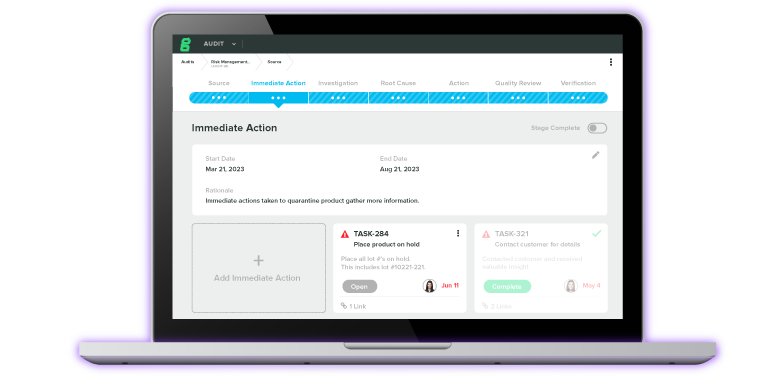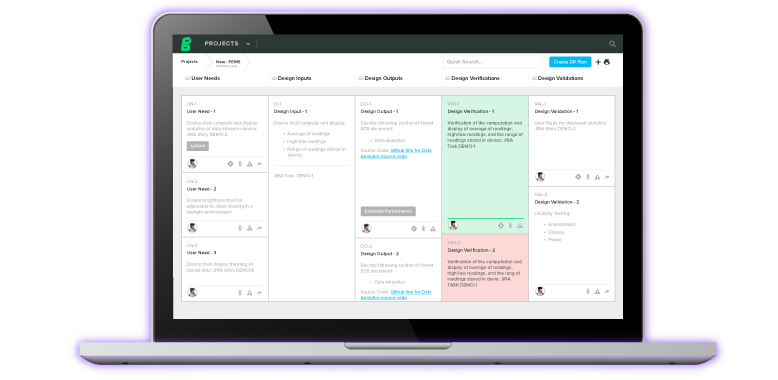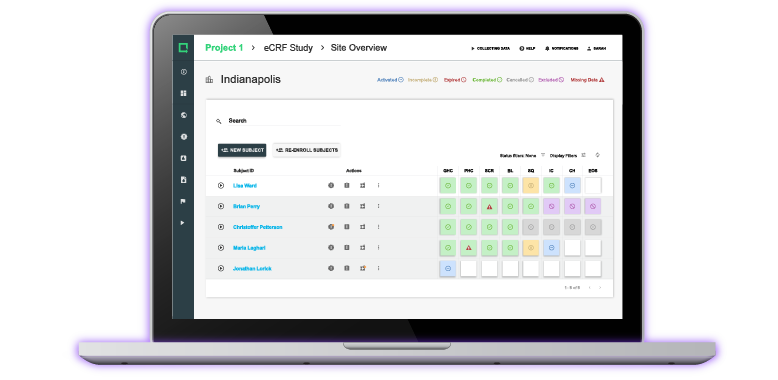Medical Device Clinical Trials are heavily scrutinized under the United States FDA and can often have a deterministic effect on whether a proposed medical device is allowed to be marketed and sold in the United States.
Under the FDA medical device regulations, medical devices fall into one of three risk classes.
Class II devices are higher in risk than Class I devices and are considered moderate in risk to the patient - they are subject to the FDA's special controls and medical device companies must submit a 510(k) pre-market notification and obtain the associated clearance before they can market the devices in the United States.
Finally, Class III devices pose the highest level of risk to the patient - they require pre-market approval via the pre-market approval (PMA) process.
While approximately 10-15% of successful 510(k) submissions for Class II devices rely on data from clinical trials, Class III devices in the highest-risk category will require extensive medical device clinical trials to establish reasonable certainty of their safety and effectiveness for the end user.
How are Medical Device Clinical Trials Initiated?
Before a medical device company can begin conducting medical device clinical trials, it must determine the types of trials that are most appropriate to establish the safety and effectiveness of the product.
Device testing, bench testing, animal testing and human clinical trials all represent possible avenues, and the company may choose to undertake a progression or battery of tests rather than depending on just one.
Before a clinical trial can begin, medical device companies must apply for and obtain an Individual Device Exemption (IDE) from the FDA. An IDE approval is required before medical device companies can perform a human study using a device of significant risk which is not yet approved for the intended use.
Clinical Trials: Feasibility Studies vs Pivotal Studies
When the United States FDA approves an IDE application, it may allow the medical device company to conduct either a feasibility study or a pivotal study. The decision depends on the established safety data for the medical device - a higher risk device will likely go through multiple stages of clinical trials, while a lower risk device might progress to a pivotal study more quickly.
An IDE for a feasibility study allows the medical device company to conduct a small clinical trial, typically of 10-40 participants. This limited trial is not intended to be the primary source of evidence for a marketing application, but it may be used to generate evidence that would support an application for a future pivotal study. This type of clinical study is generally focused on patient safety rather than justifying the risk/benefit profile of the product.
When a medical device company obtains an IDE to conduct a pivotal study, the focus is shifted away from safety and towards the collection of data that will be used to justify the safety and effectiveness of the product. Pivotal studies use sample sizes and endpoints that are statistically driven and are designed to provide support for a marketing application. In turn, the FDA analyzes the results of pivotal clinical trials with significantly more scrutiny than it uses in the review of feasibility studies.
Greenlight Guru Streamlines Risk Assessment for Medical Device
Greenlight Guru's eQMS software is an ideal solution for medical device companies who want to maximize their preparation for clinical trials. Greenlight Guru offers an integrated platform where medical device companies can manage design controls and
Using Greenlight Guru to measure and catalog potential sources of risk during the product design process ensures that medical device companies understand and address potential device risk, leading to smoother clinical trials and reduced time to market.
Related Links
Looking for an all-in-one QMS solution to advance the success of your in-market devices and integrates your quality processes with product development efforts? Click here to take a quick tour of Greenlight Guru's Medical Device QMS software →









